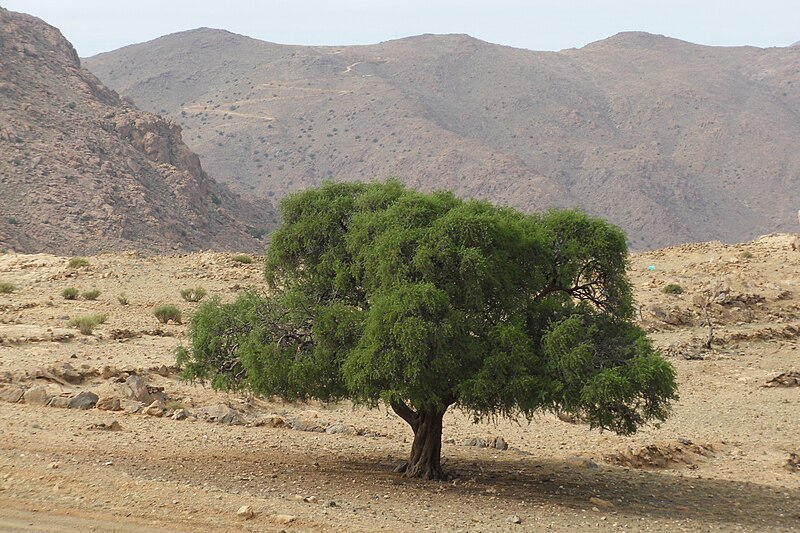By now we’ve all heard about argan oil one way or another as it’s having quite a moment in the natural and mainstream beauty communities.
Known for its many nutritive, cosmetic and medicinal properties, argan oil is derived from the kernels of the argan tree, which is endemic to Morocco. This is why the oil is now also widely known as Moroccan oil. For centuries, the people of southwestern Morocco specifically, the Berber tribe, have traditionally used argan oil as a staple food ingredient and for medicinal purposes.
Besides being adaptable to the harsh environmental conditions of Morocco and the Sahara desert, the argan tree is also listed an endangered plant species and is under the protection of UNESCO (Unite Nations Educational, Scientific and Cultural Organization). As it is derived from an endangered plant and only grows in such a small, specific location, argan oil itself is considered one of the world’s rarest natural oils.
With its growing appeal and many nourishing benefits for skin, hair and body, argan oil is currently in high demand from companies all over the world. Claims in using argan oil are that it strengthens hair, revitalizes and moisturizes skin and is a delicious addition when cooking food. The main ingredient in argan oil is Vitamin-E, a great natural resource for healthy skin, and also comprised of 80% fatty acids.
As with all natural oils, there are also many products on the market claiming to be “Pure Argan Oil” but also include a mixture of chemicals. Be aware of false claims and research products carefully. Check out this list of what to look for in recognizing impure argan oil here.
Traditionally, the Berbers collected undigested argan pits from the waste of goats that climbed argan trees and ate the fruit. Mainly a job for women, the pits were ground and pressed to make the oil used for cooking and in cosmetics. Today, the argan oil you will find in most cosmetic and personal care products are from harvested nuts straight from the tree. (No need to worry about the goats!)
The sustainable sourcing of argan oil and the Fairtrade connection that has been created with the local Berber women adds a positive light to the idea of using argan oil and its environmental impact.
According to the Christian Science Monitor, the social and economic benefits from the argan oil industry in Mororco could also be life changing for many locals. “It’s hoped that poor rural women in particular would benefit from expansion of the argan oil industry in an arid region with few industries and employment prospects.”
With this newfound hope for the argan oil industry, Bloomberg Businessweek states an increase in exports and eventual sales in Morocco: “Morocco’s exports of argan oil have more than doubled in the past five years, to more than 700 tons”. However, due to the endangered status and slow-growing nature of the argan tree, scientists are challenged with the future of argan oil’s overexposure and rising demand.
Have you tried any products containing argan oil? I’m looking forward to purchasing some pure argan oil for my hair!
Sources: The Christian Science Monitor









Khadija Fajry
Very informative post on Argan oil and that you are recognizing the benefits of Pure Argan oil.
I am a Moroccan, living in New York and I am the founder of KENZA International Beauty.
We provide two Pure Moroccan Beauty Oils: organic Argan oil & Prickly Pear Seed oil and we support social change for women in the US and Morocco.
Feel free to contact me if you need further information on Pure Moroccan Beauty Oils.
http://www.kenza-puremoroccanbeautyoils.com/
mega oils
Fantastic product, left my hair soft and silky. No frizz and smelt gorgeous. Would definitely recommend product and seller without hesitation.
tpo waterproofing membrane
I blog frequently and I really thank you for your information. This article has truly peaked
my interest. I’m going to take a note of your website and keep checking for new
details about once per week. I subscribed to your Feed as well.